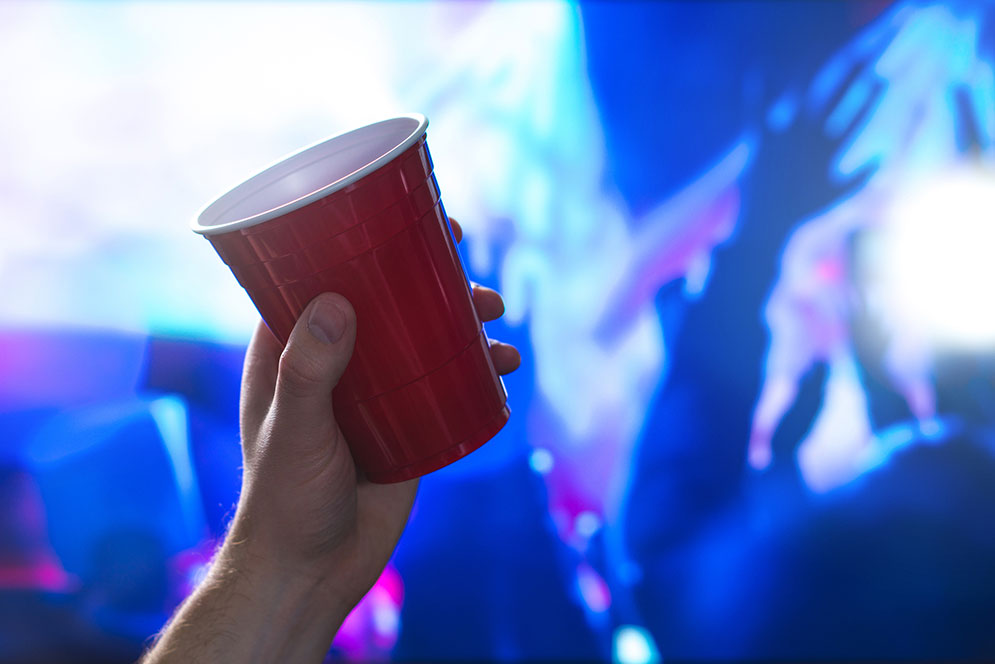Five Things to Know about Helping a Drunk Student
Who to call? Will there be penalties?

Read below as BU Today brings you info about when and how to help an inebriated student.
Many BU students don’t drink alcohol at all, but some who do will drink dangerously. The majority of the 96 Terriers taken to the hospital for acute intoxication in fall 2016 were younger than the Massachusetts legal drinking age of 21. BU Today asked staff from the Dean of Students office, Student Health Services (SHS), and the Sexual Assault Response & Prevention Center (SARP) five questions about when and how to help an inebriated student.
![]()
What should students do if they see someone who appears dangerously intoxicated?
Call the Boston University Police Department (617-353-2121) or 911 immediately. As the student’s health and safety could be at risk, the police are the ones to judge the situation. Stay with the student and lay him or her on their side if he or she is lying down.
 If the student you’re calling about is underage, will he or she get in trouble, and might you as well?
If the student you’re calling about is underage, will he or she get in trouble, and might you as well?
Neither will face University sanction. BU’s Lifebook, which spells out nonacademic policies, stipulates: “When the University learns of a student’s illegal possession or use of alcohol or drugs as a result of that student’s seeking medical assistance for him- or herself, or another person, that student ordinarily will not be subject to University disciplinary sanctions for possession or use of that substance so long as the student completes all educational and counseling programs recommended by the University.”
If you call 911, local police will assess the situation and perhaps summon an ambulance or place the student in protective custody, but they won’t impose sanctions unless there are other legal issues involved.
![]()
What happens when a student is taken to the hospital?
Typically, the student will be kept overnight for observation to ensure that he or she is getting better. Should a student’s condition worsen, caregivers will maintain vital life functions such as heart rate and respiration while processing alcohol out of the student’s system. Once the student is medically cleared to leave, he or she will be contacted by a hall director and a member of the SHS Wellness and Prevention office, and will meet with Wellness staff for a debriefing about the incident, to deal with any stress he or she may be experiencing and to discuss ways of avoiding a repeat in the future.
![]()
How can students hosting a party respond to disruptive guests, and who is responsible for making sure party guests are of legal drinking age?
A host should firmly tell disruptive guests to leave. If the latter refuse and become difficult, the host should call the BUPD, or if off campus, 911. Under state law, party hosts are responsible when underage guests drink alcohol.
![]()
When is someone unable to consent to sexual activity?
One situation is when someone is incapacitated by alcohol or other drugs. When someone is asleep or unconscious, he or she is not able to give consent. However, simply using alcohol and/or other drugs does not mean that someone is incapacitated. By definition, consent is clear and freely given. If you’re questioning whether you have consent, that is one sign you should check in with your partner. If your partner is unable to communicate clearly, stop. Alcohol does not cause sexual assault; perpetrators often use alcohol as a tool to target individuals and to excuse their own actions. Alcohol is never an excuse to commit assault.
Comments & Discussion
Boston University moderates comments to facilitate an informed, substantive, civil conversation. Abusive, profane, self-promotional, misleading, incoherent or off-topic comments will be rejected. Moderators are staffed during regular business hours (EST) and can only accept comments written in English. Statistics or facts must include a citation or a link to the citation.